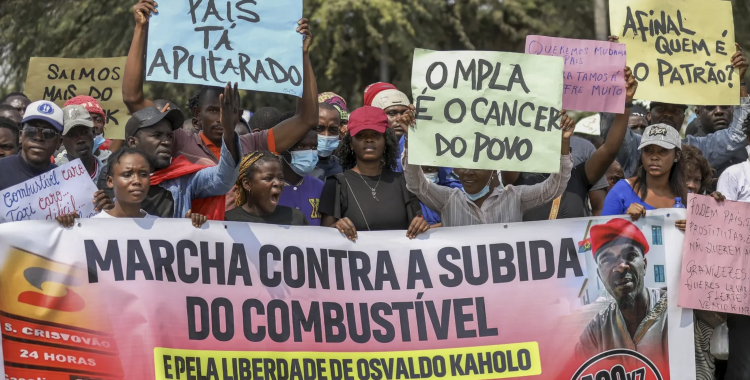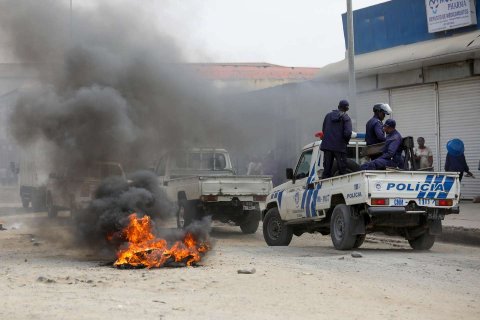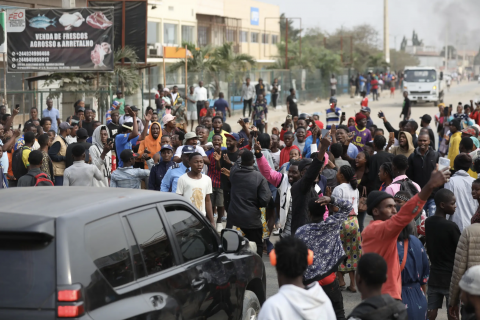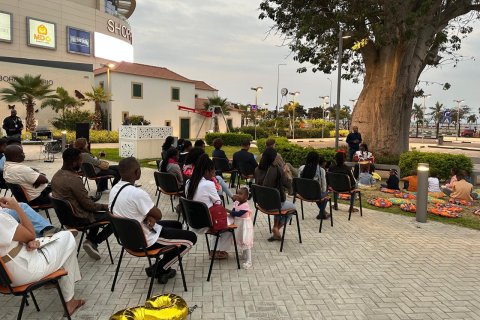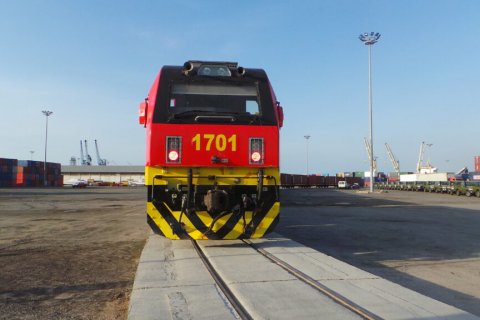At 1:30 pm, the march began from the Santa Ana cemetery, the gathering point, where hundreds of protesters gathered to express their feelings and concerns. Among them were several members of parliament from UNITA, the largest opposition party, and representatives from civil society.
Along the way, the protesters briefly stopped in front of the Luanda provincial headquarters of the National Police, calling for the release of Angolan activist Osvaldo Caholo, detained by authorities "on strong grounds for committing crimes of rebellion, public incitement to crime, and public advocacy of crime, resulting from a live broadcast in which he made serious threats against the integrity of general officers, commissioners, and other officials," according to a statement from the Criminal Investigation Service (SIC).
Posters read: "The Plates Are Empty, Courage Is Full" and "Hunger Doesn't Wait", "Our Patience Has Limits", "The MPLA is the Cancer of the People", "Diesel Oil Rises, We Fall".
Several protesters, mostly young people, walked about three kilometers under heavy police presence towards Largo das Escolas, where the protest ended.
Earlier this month, the government raised the price of diesel from 300 to 400 kwanzas per liter, a change that was made as part of the gradual removal of fuel subsidies, which has been ongoing since 2023, to align prices with market values by the end of this year.
Speaking to Lusa, student Dumilde Malongui said she joined the demonstration to express her discontent with government policies that have negatively affected the lives of citizens.
"The increase in fuel prices is setting back the dreams of Angolans, postponing their dreams, as it has a very negative impact on the lives of the people," she said, pointing to rising prices at all levels as consequences.
Besides the increase in fuel prices, the rise in transportation fares and school fees is also a concern, highlighting the increase in food expenses, a "huge challenge" for families.
"We are here to express this discontent, not as an affront to the government, but simply to wake up our government," calling on the authorities to "exercise common sense and backtrack on their measures."
Bruno da Foto is another young man who joined the demonstration due to "the absurd price of fuel," despite a country with "sufficient resources."
"[We have] a lot of oil, this price is unacceptable," said the protester, considering that Angola cannot be compared to other countries with different realities.
"If in South Africa a liter of fuel costs 800 rand (...) the standard of living there is much better than in Angola," he said, lamenting the current situation he lives in because of the increase in the price of products.
At 28 years old, Bruno da Foto said he has never had a formal job, living off odd jobs, but wants "a job that dignifies humanity."
One of the protest coordinators and organizers, Dago Nível, said the main objective was to protest the rise in fuel prices and, consequently, the population's living conditions.
According to Dago Nível, "there is a very close relationship between the rise in fuel prices and the rise in taxi fares," he pointed to the government's measure as the fundamental consequence.
"The population constantly needs to move around to earn a living, especially to earn their daily bread. With the rise in taxi fares and the fact that we have an unworthy minimum wage, the difficulties have increased; many of them have great difficulty fulfilling their commitments," he emphasized.
Dago Nível emphasized that Angolans are now experiencing "a decline in basic living conditions," which ends up "creating discontent."
This is the third consecutive Saturday demonstration, taking place in Luanda and across several provinces, against the rise in diesel prices, public transportation fares, and tuition fees.
"We've never had three consecutive weeks of protests, and today [Saturday] we have constant demonstrations in Luanda and other provinces in Angola, and this, in one way or another, is the result of indignation, frustration, and other things on the part of the population," he added.
This demonstration was organized by the protesting civil society, a platform with several other social movements.
The manifesto, read at the end, emphasizes that "the people cannot and will not bear the burdens arising from the rise in fuel prices, as well as the rise in the prices of public and private taxi services. The people do not want this," emphasizing that the increase "is seen by the people as a death sentence."

